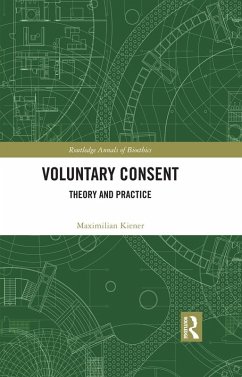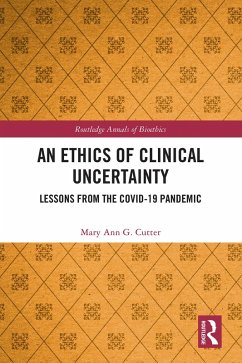
The Methods of Bioethics (eBook, PDF)
An Essay in Meta-Bioethics
Versandkostenfrei!
Sofort per Download lieferbar
32,95 €
inkl. MwSt.
Weitere Ausgaben:

PAYBACK Punkte
16 °P sammeln!
This is the first book in bioethics that explains how it is that you actually go about doing good bioethics. Bioethics has made a mistake about its methods, and this has led not only to too much theorizing, but also fragmentation within bioethics. The unhelpful disputes between those who think bioethics needs to be more philosophical, more sociological, more clinical, or more empirical, continue. While each of these claims will have some point, they obscure what should be common to all instances of bioethics. Moreover, they provide another phantom that can lead newcomers to bioethics down blin...
This is the first book in bioethics that explains how it is that you actually go about doing good bioethics. Bioethics has made a mistake about its methods, and this has led not only to too much theorizing, but also fragmentation within bioethics. The unhelpful disputes between those who think bioethics needs to be more philosophical, more sociological, more clinical, or more empirical, continue. While each of these claims will have some point, they obscure what should be common to all instances of bioethics. Moreover, they provide another phantom that can lead newcomers to bioethics down blind alleyways stalked by bristling sociologists and philosophers. The method common to all bioethics is bringing moral reason to bear upon ethical issues, and it is more accurate and productive to clarify what this involves than to stake out a methodological patch that shows why one discipline is the most important. This book develops an account of the nature of bioethics and then explains how a number of methodological spectres have obstructed bioethics becoming what it should. In the final part, it explains how moral reason can be brought to bear upon practical issues via an 'empirical, Socratic' approach.
Dieser Download kann aus rechtlichen Gründen nur mit Rechnungsadresse in A, B, BG, CY, CZ, D, DK, EW, E, FIN, F, GR, HR, H, IRL, I, LT, L, LR, M, NL, PL, P, R, S, SLO, SK ausgeliefert werden.













